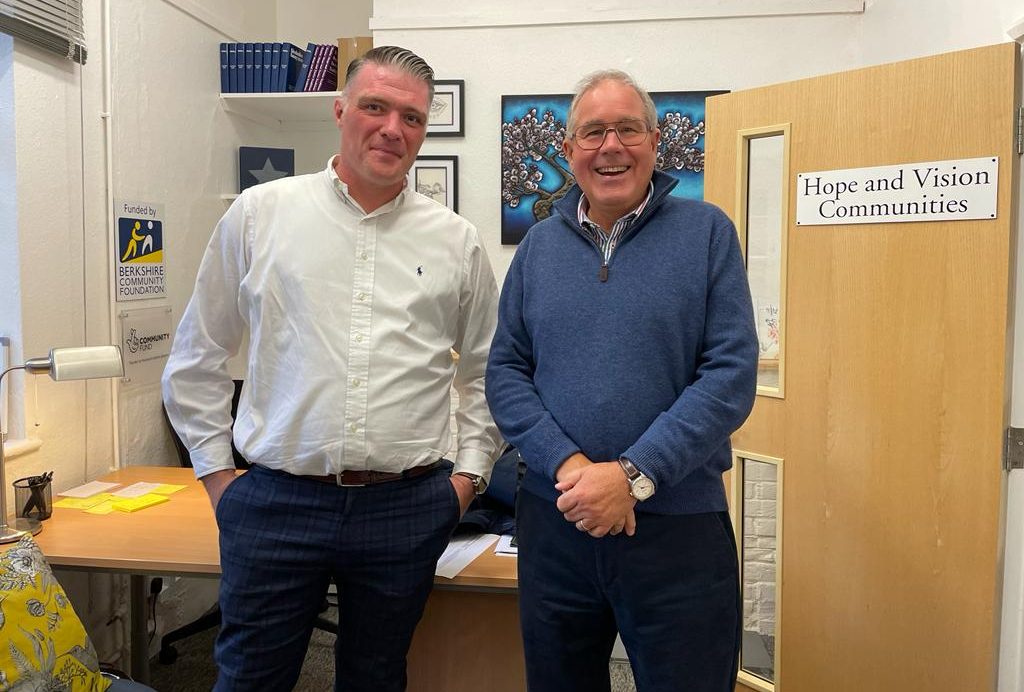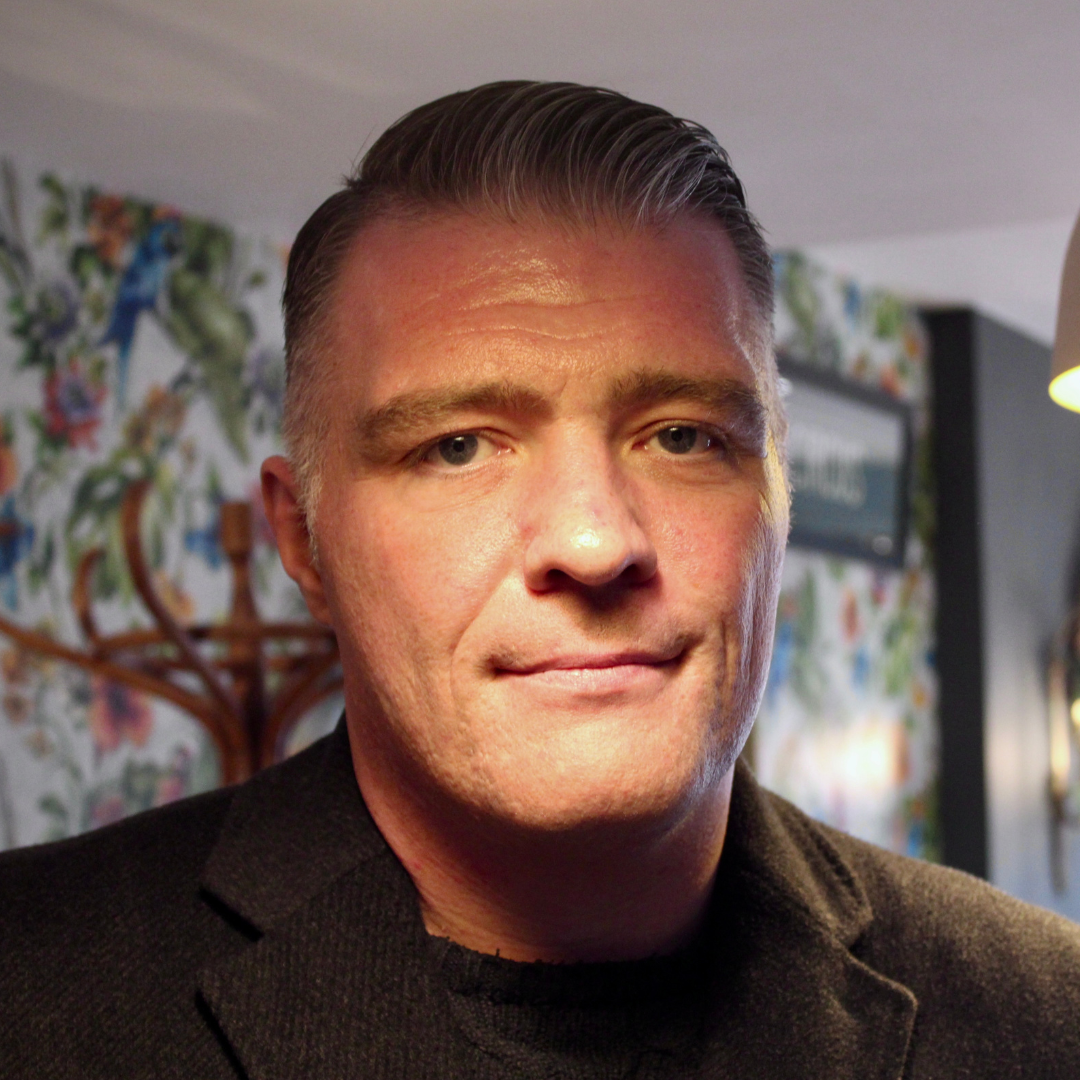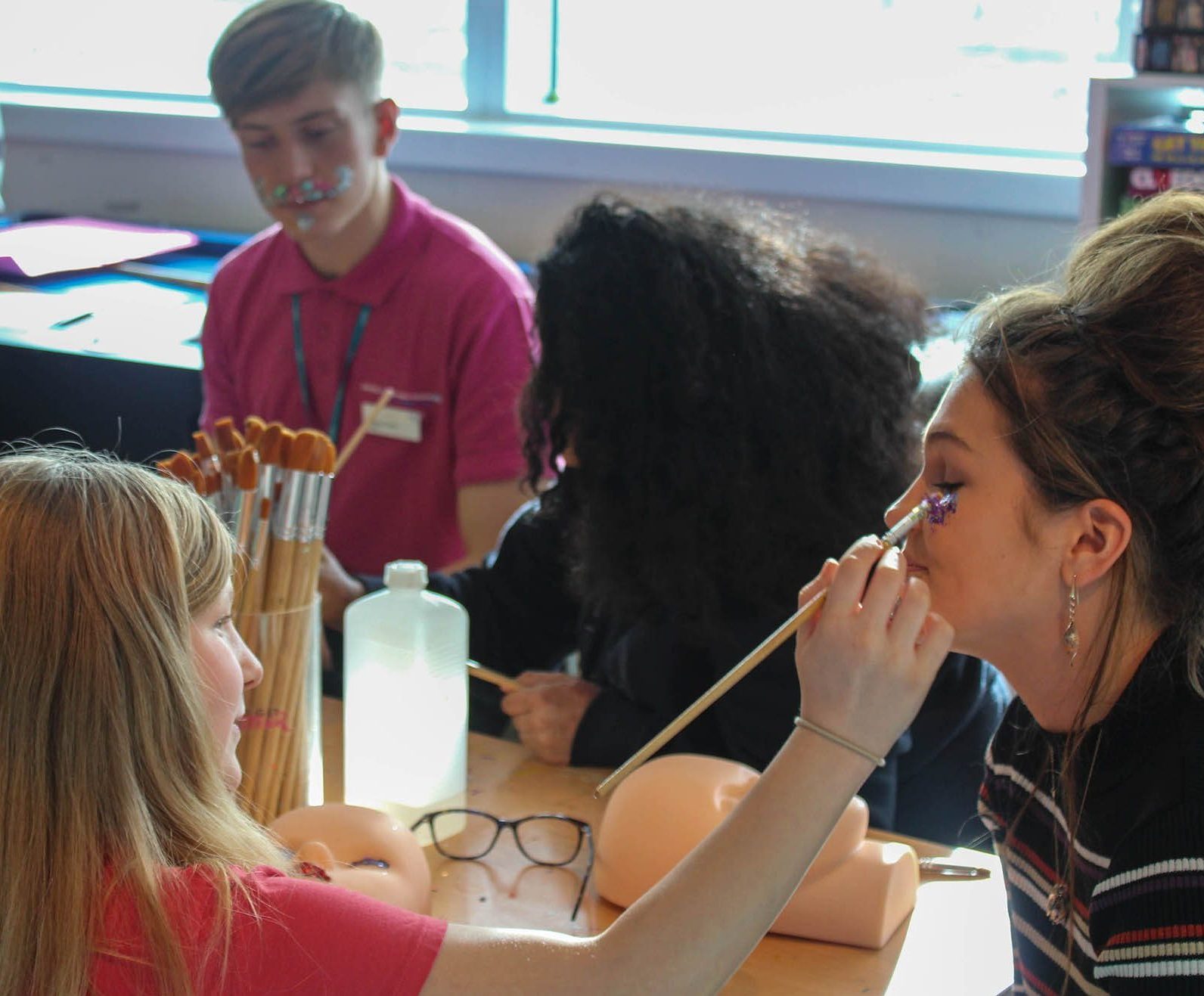
Words by Curtis McGlinchey
Tony Attwood was a prolific offender. With over 400 arrests and 56 convictions, he survived long-term addiction and a total of 15 years in prison. He has since shed those old labels and is now the Founder of Hope and Vision Communities, a charity providing supported accommodation for people with addictions to help them break the cycle of crime and restore their self-confidence. The charity has seen considerable growth in the three years since it was founded, doubling both its income and the number of men under its care.
Over video call, Louise Griffin, ex-volunteer and now Business Development Manager, can’t help smiling as she begins to explain the reasons for this success. “What’s different about this charity is Tony’s story, it moves people.” The same judge who sentenced Tony, multiple times, was approached by Tony to be a trustee.
Louise continues: “There’s of course something compelling about this relationship. The polarisation of someone who spent most of his life in prison and another who spent most of his life sending people to prison, now working together to not just support those recovering from addiction, but helping to change the way addiction is treated within the criminal justice system.” Sometimes it’s the most unlikely of relationships that form the strongest bonds.
“Relationships are the catalyst for change, and we want to share what this means with people.”

Tony, also on the video call, picks up this point. The tone of his voice is caught somewhere between the sadness of a life that could have been and the optimism of a life yet to be lived. “On day one of retirement Peter [the judge] chose to hang around with someone he sentenced. It works because although we come from different walks of life, we represent two sides of the same coin and can bring very different people together in different ways towards the same goal”.
Peter and Tony are running their first public event this year. “It’s basically me and the judge on stage in conversation, demonstrating and explaining who we are and what we do to a very diverse group. It should really challenge perceptions, and help people recognise each other’s differences and similarities.”
Tragically the story of Tony’s life of addiction and crime has its origin in unresolved childhood trauma. His recidivism was marked by a fear of the unknown and what came after a life without drugs. He took drugs to his first rehab centre in Devon because of this fear and not knowing what to do if he got kicked out. “I needed to know I had some kind of insurance policy; a safety net, and for me, that was the drugs,” says Tony.
It seems obvious, but the prison environment isn’t designed to help people work through this dependence. Tony continues: “In my view, prison is a dumping ground for the failings of mental health care and other complex needs – for some prisoners it doesn’t resolve issues, it just incubates them. Especially when you’re labelled as a junkie or a burglar, that becomes an ingrained reality. I didn’t think change was possible.”
“While in treatment Tony had the idea of setting up the charity. He read about how charities work, governance structures and fundraising and knew who he had to approach to become a trustee.”
When Tony returned to prison after the first attempt at rehab he was put into segregation. “Ten days, with nothing but my own head.” He asked one of the guards for something to read. By chance he was offered the same book as one he was recently recommended in rehab. “The Shack” by William P Young, a self-published best-seller about the manifestation of God through pain. Tony thought this meant something beyond coincidence.
Soon after he was out again and back at the same rehab centre. He went back to stay with his mum who had been diagnosed with cancer and managed to stay in recovery not using substances for six months before his past caught up with him. He was stabbed and hospitalised, where despite his requests for no opioids, he was given morphine. The addiction was back and so was the crime. He was put before Peter in court for the third time. Before his sentencing date, Tony wrote to a treatment centre in Berkshire. “I told them my life story and before I could finish, they offered me a fully funded place. The judge [Peter, pictured left below] couldn’t believe I had managed to get another place in rehab. But despite everything he let me go.”

While in treatment Tony had the idea of setting up the charity. He read about how charities work, governance structures and fundraising and knew who he had to approach to become a trustee. He wrote a letter to Peter and the Court allowed Tony to visit him where they arranged a date to have lunch together. The proposition to become a trustee naturally appealed to Peter who had previously set up a rehab project in Oxford to send offenders to rehab rather than prison. “I’m a resourceful person,” says Tony. “I learnt to adapt and survive but not everyone has this resilience.” It’s clear why Tony’s voice and influence is helping to serve those struggling with addiction who lack these skills and self-esteem. The power of repairing and finding new relationships is central to the recovery process. Having a purpose is everything.
And Tony has certainly found his. “The charity is consuming my life at the moment. I’m learning everything and everything is new to me. I’m going on an aeroplane for the first time soon.” If the work ethic and success of the last three years is anything to go by then Tony’s holiday will be short-lived. Vulnerable men depend on his presence and experience, and besides, him and the judge are due on stage.
READ MORE

Bright Futures
Children and young people with long-term illness have little to no educational support. Bright Futures UK is harnessing the skills of volunteers to help change this.

Boosting Opportunity at the Leathersellers' Federation of Schools
School led and backed by research a new social mobility project has created the dream job for Learning Mentor, Cherisa Kya-Scott.

Misha Patel - Turning the Tide
Oxford PhD student and Leathersellers’ Scholar Misha Patel heralds a new generation of engineers coming of age at the dawn of the climate emergency.